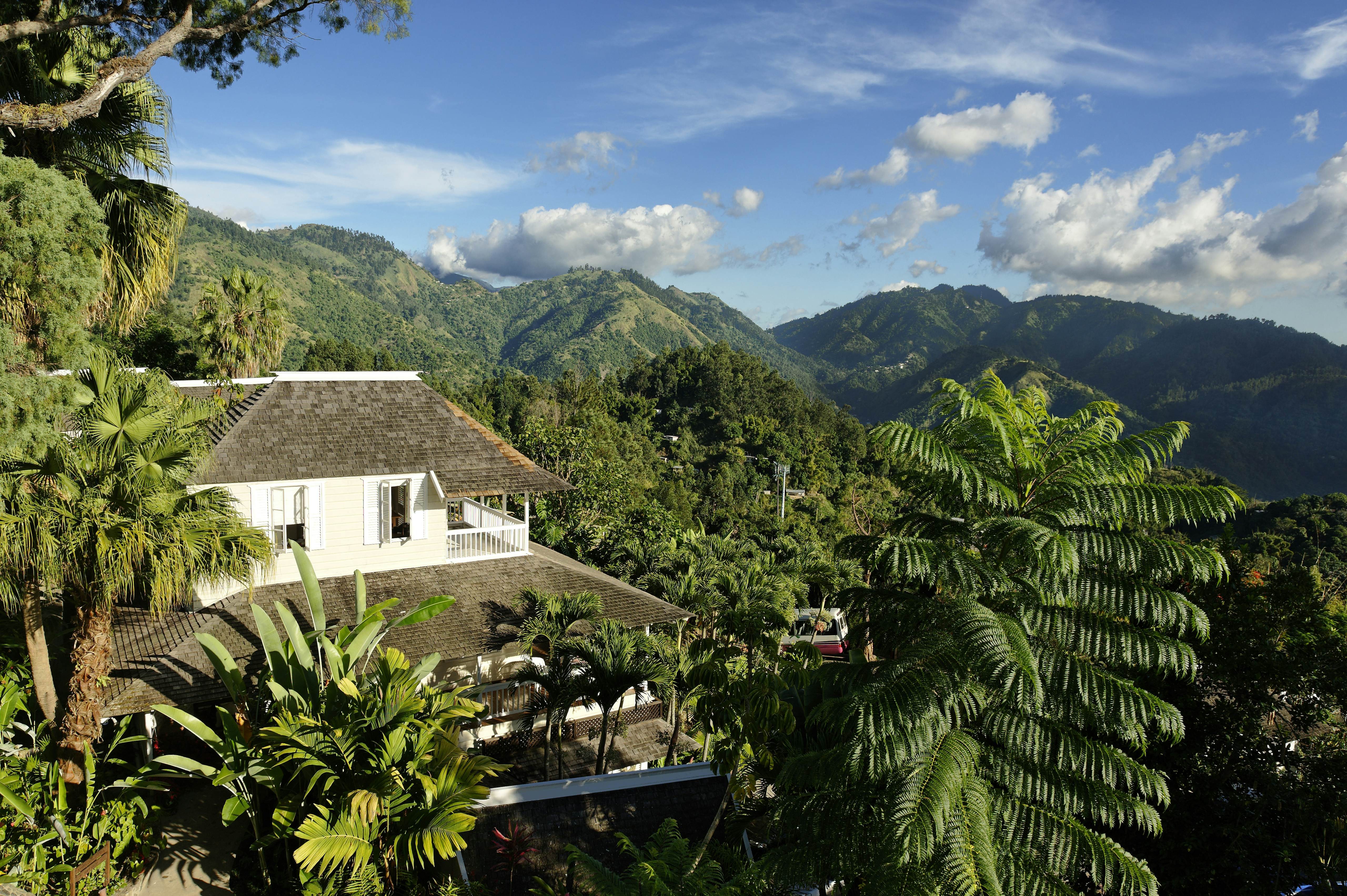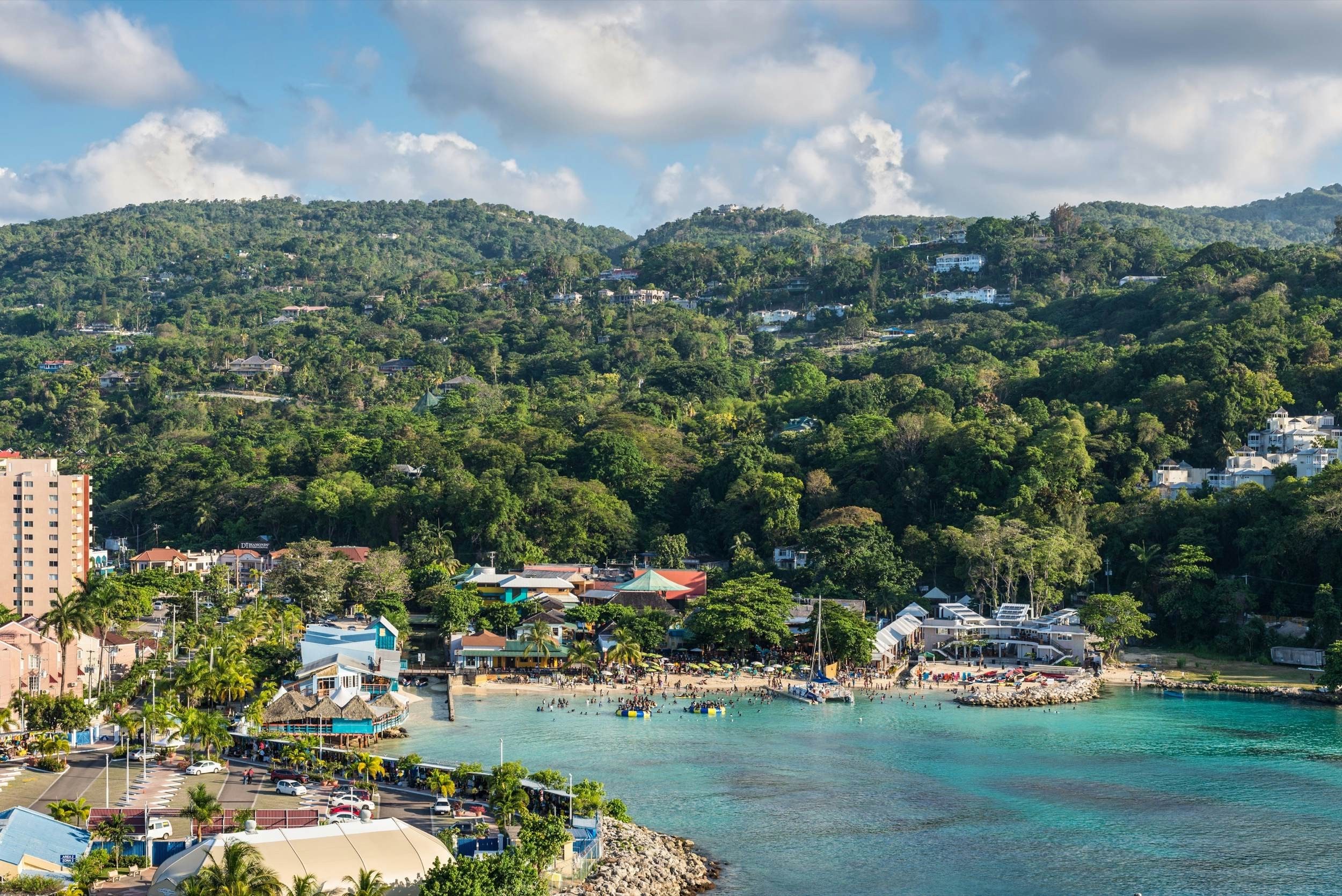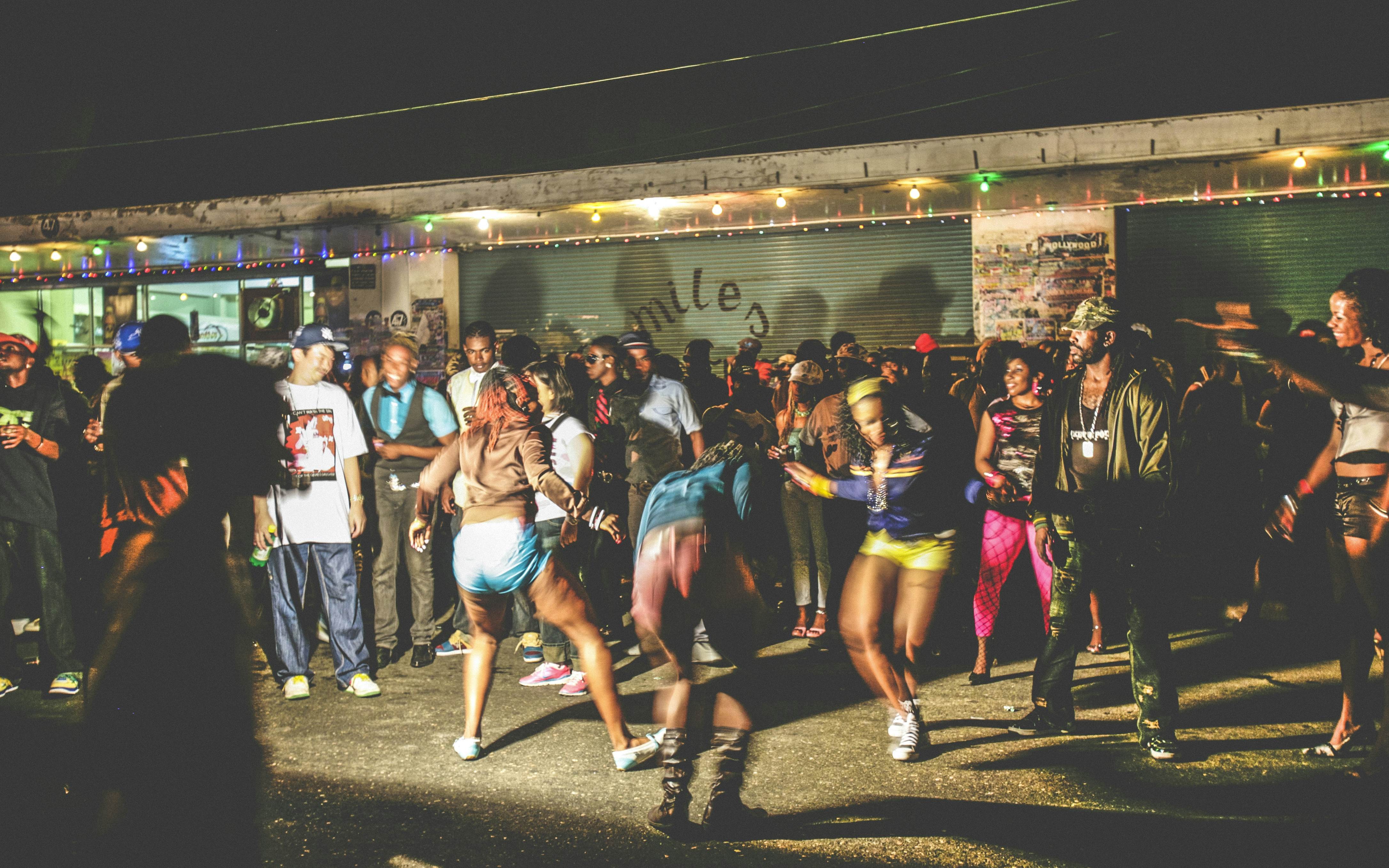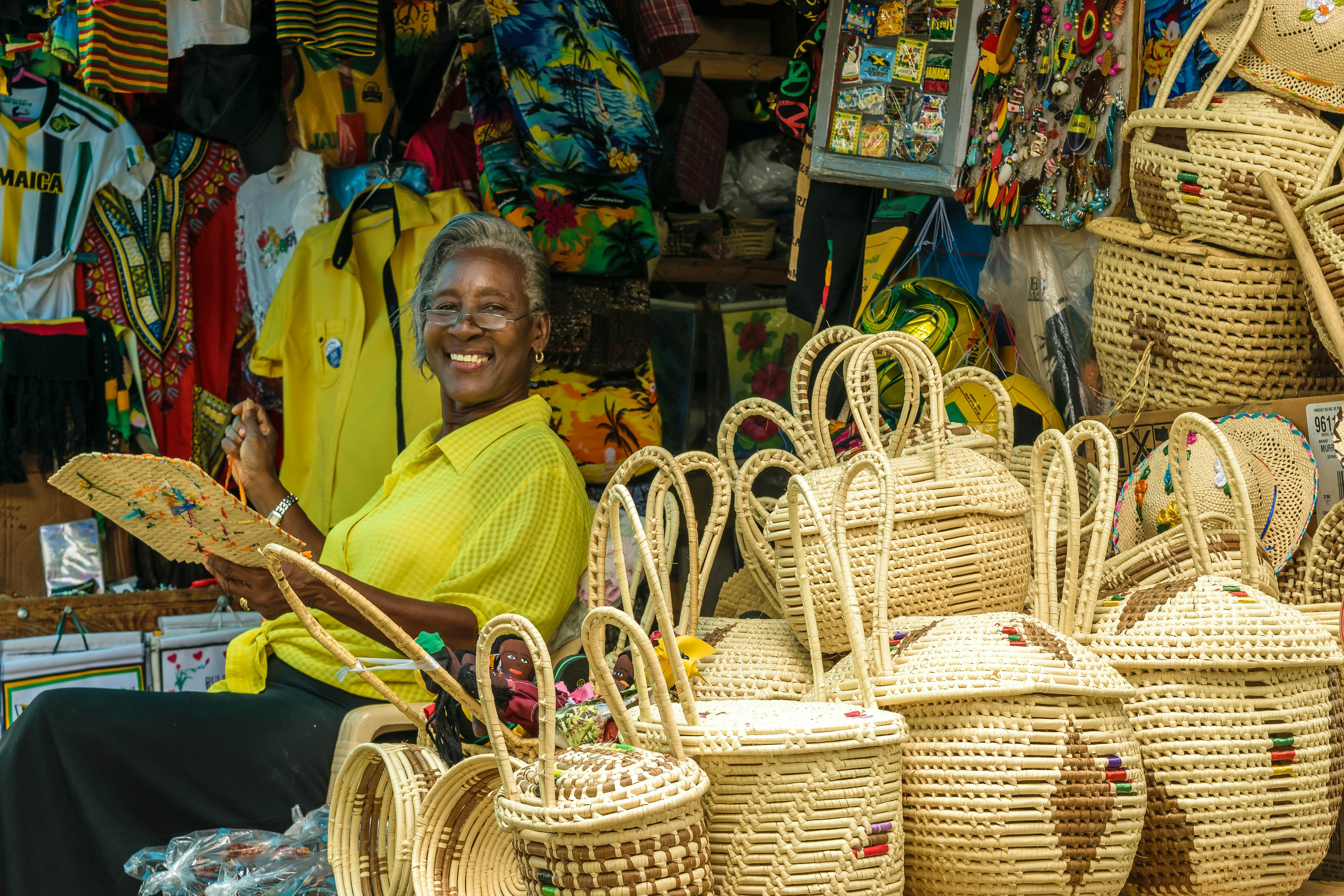Beyond the captivating reggae rhythms and vibrant dancehall scene, Jamaica boasts breathtaking natural beauty – stunning beaches, lush mountains, and cascading waterfalls – and a globally recognized culinary experience. Understanding the local customs and etiquette is crucial to fully appreciating Jamaica and navigating any potential travel concerns. Here’s what you need to know before your Jamaican adventure.
 House amidst lush greenery in the Blue Mountains
House amidst lush greenery in the Blue Mountains
1. Choose Your Jamaican Paradise Wisely
As one of the Caribbean’s largest islands, Jamaica offers diverse experiences depending on your chosen location. If you seek beaches and water sports, Negril and the north coast are ideal. Montego Bay and Ocho Rios blend culinary delights with natural attractions and lively nightlife. For an authentic Jamaican music scene, Kingston, the capital, is unmatched. Treasure Beach and Port Antonio offer a more relaxed and laid-back atmosphere, while Charles Town provides a glimpse into traditional Maroon culture. Hiking enthusiasts can embark on Blue Mountain Peak adventures or explore the remote Cockpit Country, easily arranged from Kingston or Falmouth.
2. Pack a Mosquito Net (Just in Case)
While Jamaican mosquitoes don’t carry malaria, dengue fever outbreaks can occur. Not all accommodations provide mosquito nets, so it’s best to bring your own. For protection against no-see-ums (midges), Avon Skin So Soft is a highly effective repellent.
 Beachfront hotels and shops in Jamaica
Beachfront hotels and shops in Jamaica
3. Carry Cash, Mon!
Major hotels, shops, and restaurants readily accept credit cards. However, cash (Jamaican dollars) is the preferred currency in most other places. US dollars are also widely accepted in tourist areas. ATMs and currency exchange services are abundant in Montego Bay, Kingston, and Ocho Rios. Currency exchanges generally offer better rates than ATMs, which often have fees. Small change is helpful for street vendors and public transport.
4. Hurricane Season Travel is Possible
Jamaica is susceptible to hurricanes during the Atlantic hurricane season (June to November), with most storms occurring between August and October. Traveling during this time is possible with precautions: purchase hurricane travel insurance, download a hurricane tracker app, and determine whether to evacuate early or stay put. Ensure your accommodation has a hurricane shelter and is not prone to flooding or landslides. Hotels with private generators are less likely to experience power outages. Charge electronics, pack a flashlight, first-aid kit, and food and water supplies. Comply with evacuation orders, consider relocating near the Kingston or Montego Bay airport for easier access to help, and be prepared for potential trip extensions.
5. No Need to Rent a Car
Jamaica’s main towns are well-connected by comfortable buses, minibuses, and route taxis. Exploring Jamaica via public transportation is feasible, but a car provides more flexibility for remote destinations. Car rentals are available at Kingston and Montego Bay airports for those planning a road trip.
6. Let Loose and Enjoy the Nightlife
Casual summer attire is suitable for most occasions, although some upscale resorts and restaurants prefer smart casual. Nightclubs in Kingston and Montego Bay embrace a relaxed, non-judgmental atmosphere, with “batty riders” and figure-hugging tops popular among women, and jeans and shirts common for men. If you’re new to the dancehall scene, be prepared for suggestive dancing and “whining” (hip gyrations). Don’t be afraid to participate!
 People dancing at a dancehall street party in Jamaica
People dancing at a dancehall street party in Jamaica
7. Embrace the Nightlife
Jamaica’s nightlife is legendary, particularly in Kingston, Negril, Montego Bay, and Ocho Rios. Negril is known for beach parties, while Kingston boasts sophisticated nightclubs, music events, and street dances. Things typically start late and continue until sunrise. Reggae and dancehall concerts feature numerous performers, with enthusiastic crowds expressing their appreciation with shouts and gun salutes.
8. Strike Up Conversations with Strangers
Unlike in many large cities, engaging in conversation with strangers is common and welcomed in Jamaica. While some may be hoping to do business, many are genuinely interested in getting to know you. Greetings like “good morning,” “good afternoon,” and “good night” are used frequently. Show elders extra respect. Engage in friendly banter with vendors instead of ignoring them.
9. Respect Rastafarianism
Approximately 1% of Jamaicans practice Rastafarianism, a religious and political movement incorporating Biblical teachings with the belief that Ethiopia is the Promised Land. Rastafarians use ganja for spiritual communion, live a “natural” lifestyle with I-tal food, and grow locs and beards. Some live in secluded communities that require prior permission to visit. The Rastafari Indigenous Village outside Montego Bay offers a more accessible experience.
 Woman weaving baskets at a market stall in Montego Bay
Woman weaving baskets at a market stall in Montego Bay
10. Gentle Haggling is Expected at Markets
Haggling is customary and expected when buying souvenirs or shopping at local markets. However, you should pay the stated price elsewhere. Always respect that this is someone’s livelihood, and if you’re unhappy with the price, simply walk away with a smile.
11. Jamaica is Not LGBTIQ+ Friendly
Jamaican society is largely homophobic, and the gay scene in Kingston remains underground. Public displays of affection between gay couples are strongly discouraged, as male homosexual acts are illegal and punishable by up to 10 years in prison. However, some hotels, including all-inclusive resorts, welcome LGBTIQ+ travelers in popular tourist destinations.
12. Clean Public Bathrooms Are Hard to Find
Shopping malls, cafes, and restaurants often charge for bathroom use, and hygiene standards may be lacking. Finding a bathroom outside the hospitality sector can be challenging.
13. Tap Water is Generally Safe
Jamaica’s tap water is generally safe to drink in most areas. Avoid tap water in remote rural regions and steer clear of ice sold at street stands. While bottled water is available, bring reusable flasks to reduce plastic waste.
14. Vegetarian and Vegan Options Abound
Plant-based I-tal food, a core tenet of Rastafarianism, is widely available and delicious. Expect fresh fruit juices, plantain fritters, steamed callaloo, tropical fruits, and more. Rice ‘n’ peas is a common side dish in non-Rasta eateries.
15. Expect Hustlers
Travelers should expect constant sales pitches from hustlers, especially in tourist hotspots like Montego Bay, Negril, and Ocho Rios. Be firm yet polite when declining their offers.
16. Beware of Tour Scams
Common scams involve transportation offers to attractions, with later claims of only paying a one-way fee. Self-appointed guides may add unexpected charges at the end of tours. Always clarify the agreed-upon fee beforehand.
17. Gang Violence Doesn’t Target Tourists
Organized crime revolves around gang violence, primarily in Kingston and Montego Bay. This violence rarely targets tourists. However, opportunistic muggings and pickpocketing can occur, so take precautions like taking taxis at night and carrying minimal cash.
18. Female Travelers Have Reported Assaults
Single women may experience persistent come-ons, which can be tiresome. Be polite but firm if uninterested. There have been reported assaults on female tourists at beach resorts, with allegations sometimes mishandled.
19. Public Ganja Smoking is Illegal
Smoking ganja is integral to Rastafarian culture and widespread among Jamaicans. While decriminalized since 2015, public smoking is still illegal and punishable by a fine. You can possess up to two ounces for personal use without a criminal record. Exceptions exist for religious and medical purposes, with medical dispensaries available with a prescription. Attempting to take ganja home can result in imprisonment.
20. Other Drugs and Law Enforcement
Cocaine is also prevalent, contributing to gang violence. Penalties for possessing hard drugs are severe. Expect police roadblocks and random car searches. Avoid accepting drinks from strangers in nightclubs due to concerns about date rape drugs.
21. Driving Isn’t for the Fainthearted
Jamaicans often drive aggressively, especially in cities and on winding mountain roads. Watch for drivers overtaking on blind corners and avoiding potholes. Drive on the left, and consider avoiding Kingston and Montego Bay if you’re a novice driver.
With these insights, your trip to Jamaica will be more informed, enjoyable, and safe. Embrace the culture, respect the customs, and experience the magic of this incredible island!